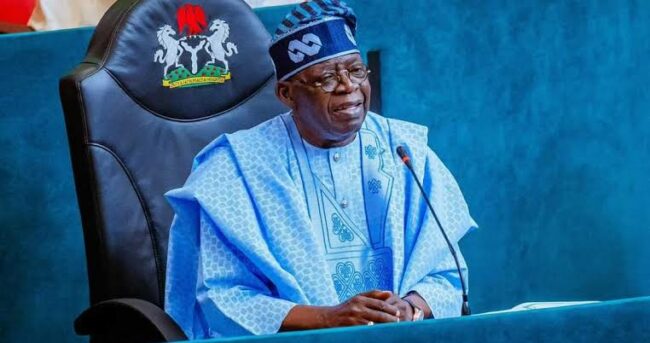President Bola Tinubu has emphasised that his administration did not oppress workers’ unions during their recent two-day nationwide strike.
Instead, the government engaged the union leaders in discussions to address their concerns. In his Democracy Day broadcast, Tinubu highlighted the administration’s commitment to democratic ideals, such as freedom of speech and the right to peaceful protest.
“In the face of labour’s call for a national strike, we did not seek to oppress or crack down on the workers as a dictatorial government would have done,” Tinubu stated.
“We chose the path of cooperation over conflict. No one was arrested or threatened. Instead, the labour leadership was invited to break bread and negotiate towards a good-faith resolution.”
Tinubu underscored the importance of reasoned discussion and principled compromise as hallmarks of democracy.
He affirmed, “These themes shall continue to animate my policies and interactions with the constituent parts of our political economy.
“I take on this vital task without fear or favour, and I commit myself to this work until we have built a Nigeria where no man is oppressed.”
He also stressed the necessity of taking the right path, even if it is challenging.
“Our national greatness will not be achieved by travelling the easy road. It can only be achieved by taking the right one,” Tinubu said, invoking the words of American President Franklin D. Roosevelt: “There are many ways of going forward. But only one way of standing still.”
“We dare not slumber lest the good things awaiting our immediate future pass us by. We dare not plant our feet in idle standstill in the middle of the intersection of hope and despair. We know the proper way forward and we shall take it.”
Recall that the nationwide strike, organised by the Nigerian Labour Congress (NLC) and the Trade Union Congress (TUC), along with their affiliates, was in demand for a new minimum wage and a reduction in electricity tariffs.
The strike resulted in the shutdown of essential services, including electricity, airports, hospitals, and schools. It was suspended after two days to allow for further negotiations between the unions and the government.
ALSO READ THESE TOP STORIES FROM NIGERIAN TRIBUNE
